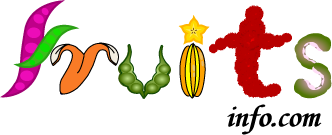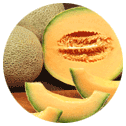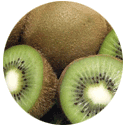Cashew nuts Health Benefits And Nutrition Values
Cashewnut belongs to the tree of Amazon that grows up to 15 m high. It has a thick and trunk with branches that they frequently touches the ground so windingly. These fruit often found growing on the drier sandy soils in the central plains of Brazil and are cultivated in many parts of the Amazon forest.It grows in its own kidney-shaped hard shell at the end of this pseudo-fruit, or peduncle. The nut kernel inside is covered with an inner shell, and between the two shells is a thick, caustic, and toxic oil called cardol.

Nutrient |
Amounts/Selected Serving |
DV% |
|---|---|---|
Calcium |
11.3mg |
1% |
Calcium |
10.4mg |
1% |
Iron |
1.9mg |
10% |
Magnesium |
81.8mg |
20% |
Phosphorus |
166mg |
17% |
Potassium |
185mg
|
5% |
Sodium |
3.4mg |
0% |
Zinc |
1.6mg |
11% |
Copper |
0.6mg |
31% |
Manganese |
0.5mg |
23% |
Selenium |
5.6mcg |
8% |
Fluoride |
~ |
Nutrients |
Amounts/Selected Serving |
DV% |
|---|---|---|
TotalCalories |
155(649 kJ)
|
8% |
Carbs |
34.4(144 kJ) |
|
Fat |
103(431 kJ)
|
|
Protein |
17.7(74.1 kJ)
|
|
Alcohol |
0.0(0.0 kJ) |
Nutrients |
Amounts/Selected Serving |
DV% |
|---|---|---|
Cholesterol |
0.0mg |
0% |
Phytosterols |
~ |
~ |
Nutrients |
Amounts/Selected Serving |
DV% |
|---|---|---|
Fat |
12.3g |
19% |
Saturated Fat |
2.2g |
11% |
Monounsaturated fat |
6.7g
|
|
Polysaturated Fat |
2.2 g |
|
| trans fatty acids |
0.0mg |
|
transmonoenoicfattyacids |
0.0mg |
|
trans-polyenoicfattyacids |
0.0mg |
|
Omega-3 fatty acids |
17.4mg
|
|
Omega-6 fatty acids |
2179mg
|
Nutrient |
Amounts/Selected Serving |
DV% |
|---|---|---|
Vitamin A |
0.0IU |
0% |
Vitamin B6 |
60.1 mgmg |
6% |
Vitamin B12 |
120.0 mcg |
0% |
Vitamin C |
0.1mg |
0% |
Vitamin D |
~ |
~ |
Vitamin D3 |
0.0mg |
|
Vitamin E |
0.3mg |
1% |
Vitamin K |
9.5mcg
|
12% |
Thiamin |
0.1m |
8% |
Riboflavin |
0.0mg |
1% |
Niacin |
0.3mg |
1% |
Pantothenic |
0.2mg |
2% |
Choline |
~ |
|
Betaine |
~ |
|
Folate |
7 mcg |
2% |
Nutrients |
Amounts/Selected Serving |
DV% |
|---|---|---|
carbohydrates |
9.2g
|
3% |
Dietary Fiber |
0.9g |
4% |
Starch |
6.6g |
|
Sugars |
1.7g |
Nutrients |
Amounts/Selected Serving |
DV% |
|---|---|---|
Protein |
5.1g |
10% |
Nutrients |
Amounts/Selected Serving |
DV% |
|---|---|---|
Alcohol |
0g |
|
Water |
1.5g |
|
Ash |
0.7g |
|
Caffeine |
0.0mg |
|
Theobromine |
0.0mg |
-
HEALTHY HEART
-
BONE HEALTH
-
GALLSTONES
-
WEIGHT LOSS
-
DIABETES
-
LIVER & BRAIN
Cashews have lower fat content, approximately 75% of their fat is unsaturated fatty acids content is oleic acid. Increased OA intake reduces your blood triglyceride and low-density lipoproteins (LDL). It also elevates your high-density lipoprotein (HDL) concentration. This combined action significantly improves your blood lipid profile and lowers your risks of plaque formation and heart disease.
Cashews are rich in magnesium and copper. Copper plays a role in a wide range of physiological processes including iron utilization, elimination of free radicals, development of bone and connective tissue. Magnesium is also vital for healthy bones. About two-thirds of the magnesium in the human body is found in our bones. Magnesium balances the calcium level in our body and thus helps to regulate nerve and muscle tone. In nerve cells, magnesium serves as a calcium channel blocker that prevents calcium rushing into the nerve cell. By blocking calcium's entry, magnesium keeps our nerves relaxed.
The cashew nut, have been associated with a reduced risk of gallstone disease. At least one ounce of nuts a week, such as cashews, gives women a 25 percent lower risk of developing gallstones. Cashew nuts have high fat content, but it is considered as"good fat." This is due to the agreeable fat ratio in the nut is 1:2:1 for saturated, monounsaturated, and polyunsaturated, respectively.
Cashews are recommended for several diet plans, which are a part of weight reduction programs. These are cholesterol free. Cashew nuts have high fat content, but it is considered as "good fat." This is due to the agreeable fat ratio in the nut is 1:2:1 for saturated, monounsaturated, and polyunsaturated, respectively. As cashews are rich in dietary fiber and energy density, if consumed in moderate amounts they may be satisfying and wont increases the weight.
Cashews work with a person's lipid profile and provide beneficial effect on those with diabetes or at risk for diabetes. These nuts aid in reducing triglyceride levels in diabetes patients that protect them from further cholesterol and sugar related problems. Integrating frequent consumption of Cashews into your diet, especially raw cashews, may lower the risk of developing Type 2 Diabetes.
Cashews are the best sources of dietary copper. This mineral helps to breakdown the fat in your food. Inadequate copper intake can raise your blood triglyceride and increase you in risk of fatty liver and heart disease. Copper also needed for proper brain function. Copper is involved in the production and secretion of melanin and dopamine. Without enough copper intakes might leads to severe sun burn, chronic fatigue syndromes, depression and other neurological disorders.
PERSON WHOM MAY NOT CONSUME CASHEW NUTS
-
WEIGHT GAIN
-
BLOOD PRESSURE
-
HEAD ACHE
The cashews are rich in caloric. However, consuming more than a single serving may introduce too many calories into your meal plan. Hence intake of large amount leads to weight gain in the human body.
Eating cashews in moderation in a reduced-sodium meal plan is not likely to trigger hypertension, but consuming these nuts in large quantities can make the sodium add up fast. In order to avoid blood pressure consumes less cashew nut.
Person those who suffer from headaches and migraines, avoid cashews. These nuts contain the amino acids tyramine and phenyethyamine. However, if you have a sensitivity to these amino acids, they can also cause head pain.















